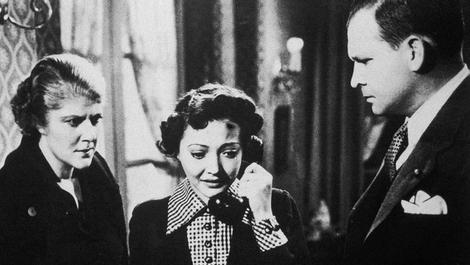You Only Live Once
12Because of the way the process of making films has changed over the years, the actors of today won't star in anyhere near as many as the actors of old did. Back then, during the heyday of the Hollywood studio system, it wouldn't be unusual for a contracted star to appear in as many as three films a year.
Henry Fonda for instance, starred in over a hundred of them during his illustrious career, and one of his first leading roles was in 1939's You Only Live Once opposite Sylvia Langley .
Having had a few spells in prison, Eddie Taylor (Fonda) is looking to turn his back on a life of crime. The reason for this change of heart? Love of course; he's fallen hard for Joan (Sidney) and is prepared to play it straight just to be with her.
Eddie may well be keen to start afresh, but it seems society is less forgiving, as he soon encounters a general attitude towards him of once a criminal always a criminal. Still, he manages to get a job and he hopes that this good luck is just the beginning. It's not.
A bank robbery takes place and Eddie's hat, with his initials on the inside, is found at the scene of the crime. Eddie believes an old cohort of his took it, but he doubts anyone else will believe him. He does hand himself in however, but only on Joan's request. Eddie soon finds himself back in prison and this time with a murder rap hanging over his head. His situation soon spirals out of control and Eddie once again on the wrong side of the law, regardless of his innocence.

But you promised me you wouldn't stop off with a prostitute tonight, you knew my parents were coming for dinner!
Not only was this film an early leading role for Fonda, but it was only the second film that Austrian-born Fritz Lang directed on American soil.
The film itself is often cited as being an early example of the film noir genre, which was popular during the forties and fifties. This genre was typically dark in tone, and usually found its main protagonist with a criminal dilemma to face. Fonda's Eddie certainly fits that particular bill.
The film starts off fairly bright and breezy in tone, even including a couple of nice gags from the off, but it soon begins a dark descent.
Although Fonda is often remembered for playing, more often than not, the clean-cut leading man, he did manage to explore a darker side to one or two characters, which he did pretty early on here with Eddie.
An audience is happy to accept Eddie's atonement for previous sins, due to his acceptance of the wrongs he committed and his willingness to change. And let's face it, he doesn't much look like a criminal. Lang allowed Fonda to dig deep and bring a real sense of hopelessness and desperation to his character. It's an impressive transformation that Fonda puts his character through and Lang captures his plummeting fall into despair beautifully.
Lang also manages catch another transformation in his leading lady; initially it's difficult to see Joan as anything other than the archetypal girl next door, who obviously knows right from wrong. Sidney takes her character on quite a tortuous journey though, that finds her love for her man pushing her over the law-abiding edge.
What it lacks is the tough, hard-boiled dialogue that was lifted from much of the pulp fiction that many of the films of the genre were based on.
Still, it's a great example of a maestro director at work, with some truly impressive performances from its leading couple. And what better way for this dark tale to celebrate its 75th anniversary than by seeing the light of day once again.
